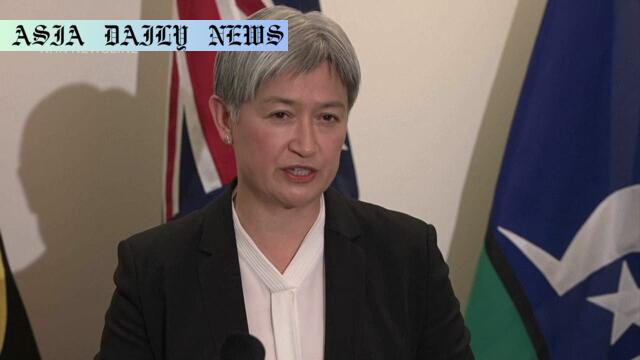Embassies: Following escalating tensions, several embassies in Iran, including those of Australia and New Zealand, have suspended operations.
Key Point 1: Some embassies in Iran, including Australia and New Zealand, have suspended operations due to rising tensions.
Key Point 2: The Australian government evacuated its officials and encouraged citizens in Iran to leave immediately, if safe to do so.
Key Point 3: Other countries such as Portugal and Bulgaria also adjusted their diplomatic missions, moving key operations elsewhere.
Key Point 4: The Japanese Embassy remains operational in Tehran, monitoring the ongoing situation carefully.

Escalation in Iran Prompts Diplomatic Closures
The rising geopolitical tension amid the Iran-Israel conflict has led to unprecedented actions by several embassies in Tehran. In a significant move, countries such as Australia, New Zealand, and others have suspended their diplomatic operations in Iran. This decision underscores the severity of the current situation and the safety concerns faced by foreign personnel stationed in Tehran.
On Friday, Australian Foreign Minister Penny Wong announced the immediate suspension of activities at their embassy in Tehran. The government swiftly evacuated Australian embassy officials and their dependents, while reaffirming that the Australian Ambassador to Iran would remain in the region to provide essential support. Wong’s statement also included a stern advisory for any Australians currently in Iran to leave the country if it is safe for them to do so. Such remarks are an indication of a deteriorating security situation on the ground.
Other Nations Take Similar Steps
New Zealand, another neighboring ally sharing economic and cultural ties with the region, followed suit. New Zealand suspended the operations of their mission in Tehran as a safety precaution. Similarly, other notable countries, such as Switzerland and Portugal, temporarily closed down their diplomatic presences. Portugal, in particular, has relocated its embassy’s operational responsibilities elsewhere. Bulgaria chose to move its diplomatic functions to Baku, the capital of Azerbaijan, citing safety concerns amidst the ongoing conflict.
Interestingly, Japan has decided to keep its embassy fully operational in Tehran but remains cautious and monitors the developments closely. Each of these moves reflects a calculated response based on the intensity and unpredictability of the evolving conflict in the region.
Security Measures Highlight Increased Risks
The steps taken by multiple nations highlight not only the critical risks involved but also the depth of diplomatic challenges faced by global governments in maintaining relations during uncertain times. A suspension of diplomatic interactions, even temporarily, is always a complex decision. The smooth functioning of these embassies is imperative for catering to citizens abroad, business relations, and bilateral diplomacy. With the Iran-Israel conflict continuing to escalate, international governments must tread cautiously while ensuring the safety of their citizens and diplomatic staff.
Moreover, these closures underline a growing consensus among nations to prioritize their diplomatic endeavors amid regional chaos. It remains to be seen how long these embassies will remain closed, but the recent decisions reflect broader concerns regarding safety and regional instability.
Future Implications for Diplomatic Relations
As the crisis unfolds, the strain on international diplomacy becomes more evident. While the immediate closures demonstrate a practical response to a volatile situation, they may also impact long-term diplomatic relations, particularly if prolonged. These disruptions could affect not just bilateral discussions, but also cultural, economic, and strategic engagements. For the citizens of nations who depend on embassy services abroad, the lack of accessible consulate support can be an added source of frustration and anxiety during uncertain times.
The coming weeks will likely see governments reassessing their standings, analyzing risks on the ground, and determining appropriate timelines to restore their diplomatic missions. Until then, the global community will continue to observe the developments with bated breath, hoping for restoration of peace and stability in the region.
Commentary
The Challenges Faced by Governments Amid Conflicts
The decision by multiple governments to suspend operations in Tehran is a clear reflection of the complexities that nations face during geopolitical tensions. Ensuring the safety and security of diplomats and their families is naturally a top priority, but it also leaves behind a gap in the efficiency of diplomatic operations. Such decisions are never taken lightly and often involve intense deliberations and risk assessments at the highest levels.
Impact on Citizens Abroad
The sudden closure of embassies can create anxiety for citizens residing or traveling abroad. For Australians in Iran, the government’s advisory to leave immediately may present challenges, especially in the case of those with limited access to flight routes or dependent on embassy services. The same can be said for citizens of New Zealand, Bulgaria, Portugal, and other affected countries. Governments must ensure contingency plans are in place to provide alternative support during these challenging times.
Global Diplomacy in a Turbulent World
This ongoing situation highlights the fragility of international diplomacy during conflicts. It underscores the importance of robust communication between nations and unified efforts in ensuring peace and stability. With multiple countries adjusting their diplomatic strategies, it also spotlights the profound ripple effects of conflict on global relations. Nations must find a balance between protecting their personnel and maintaining minimal disruption to diplomatic ties.
Ultimately, as a global community, the hope is for de-escalation and constructive dialogue to find a peaceful resolution to the ongoing conflict. Until then, the current scenario remains a stark reminder of the unpredictable challenges of international diplomacy in an increasingly interconnected world.


